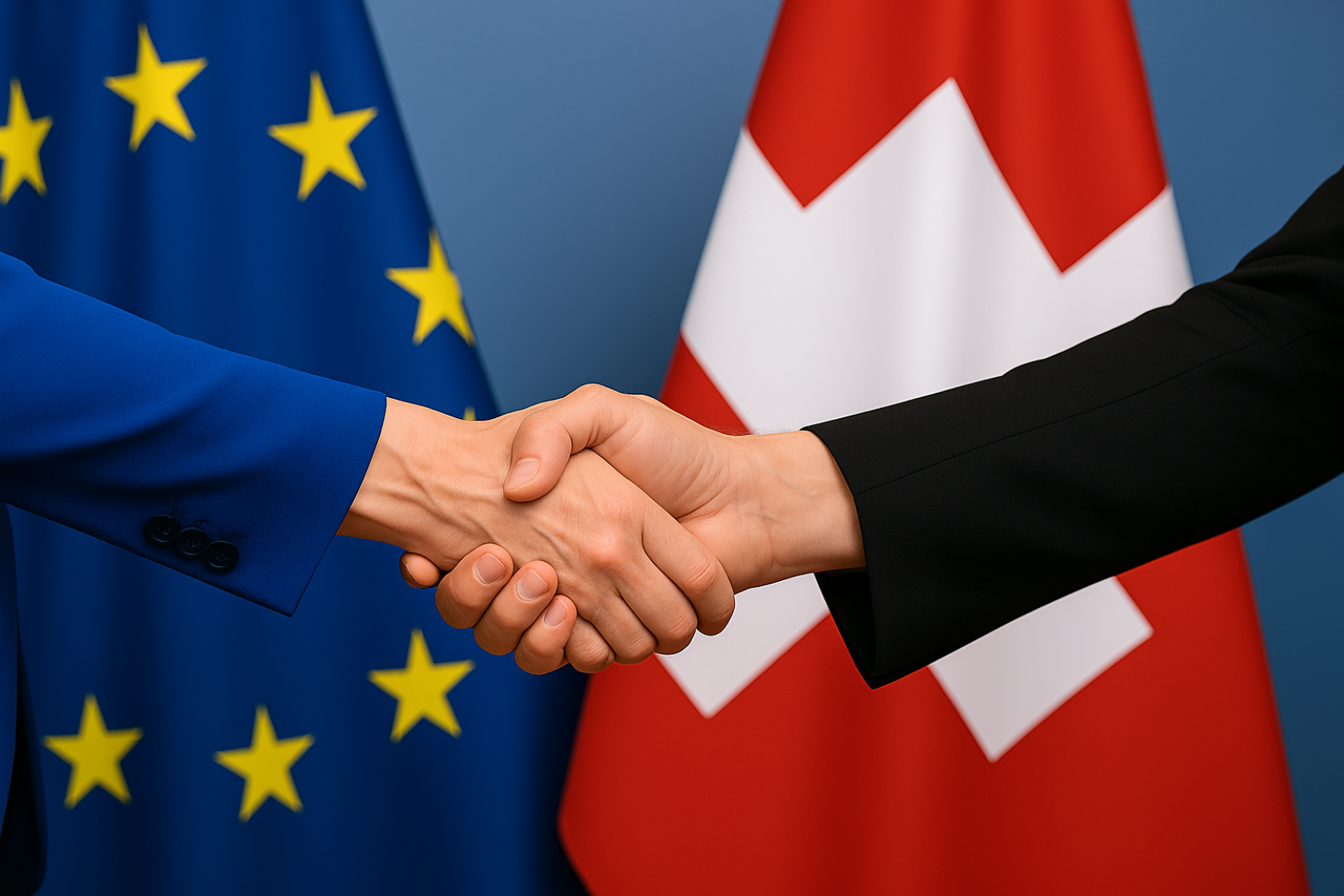Bilateral III
Federal Council opens consultation procedure

As of today, they are finally in the consultation process: the Federal Council has sent the negotiated agreements and the domestic policy implementation of the Bilateral Agreements III into the next round. Swiss Textiles will scrutinise the agreements and position itself on them by the summer break.
Four years after negotiations on the framework agreement were broken off, European policy is on the move again. Today, Friday 13 June 2025, the Federal Council opened the consultation on the new bilateral agreements.
The Bilaterals III are a decisive step towards regulated relations with the EU. The existing agreements - such as the MRA and the free movement of persons - play a key role for the industry.
MRA stands for Mutual Recognition Agreement, an agreement on the mutual recognition of conformity assessments. This means that technical products tested and certified in Switzerland can be imported directly into the EU market without having to be tested again.
Both agreements enable companies to easily supply their textile machinery or personal protective equipment to the EU and meet their demand for skilled labour. The same applies to full association with Horizon Europe: this is the only way for the industry to remain innovative and stand out from the competition.
The EU is the Swiss textile and clothing industry's most important trading partner.
Over several hundred pages, it updates the previous internal market agreements, introduces two new agreements, defines cooperation in various programmes and sets out the institutional rules.
The publication of the agreement marks the start of a new chapter - after the Federal Council had already publicised initial information on the conclusion of negotiations last December.
The framework agreement offers Switzerland the opportunity to continue to participate in the single market while retaining its sovereignty.
New negotiations before a court of arbitration
The new agreements include the electricity agreement, which is intended to ensure electricity stability. The institutional elements, in turn, will allow disputes to be negotiated before a court of arbitration in future. This will significantly improve the situation for Switzerland. After all, the law of the jungle currently applies.
In the fact sheets, the Federal Council clearly sets out how the negotiated agreements are structured - so no surprises are to be expected. At the same time, the social partners have agreed on a joint domestic policy solution for wage protection consisting of 14 measures. This negotiated solution will also be submitted for consultation. In terms of both foreign and domestic policy, it offers Switzerland significantly more advantages than disadvantages overall.
Textile industry examines agreements in the working group
As a next step, Swiss Textiles will examine the negotiated agreements within a working group and take a position on them before the summer break. The association will also submit a detailed consultation response to the FDFA by October.
The framework agreement offers Switzerland the opportunity to continue to participate in the single market while retaining its sovereignty.
We will continue to keep you up to date - in the dossier on the bilateral agreements and regulated relations with the EU on our website.